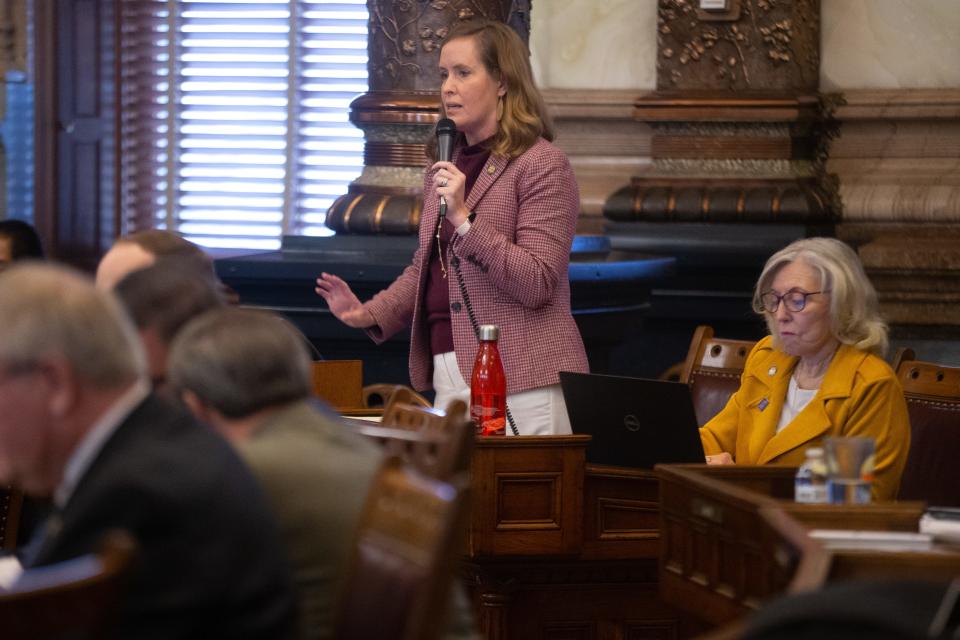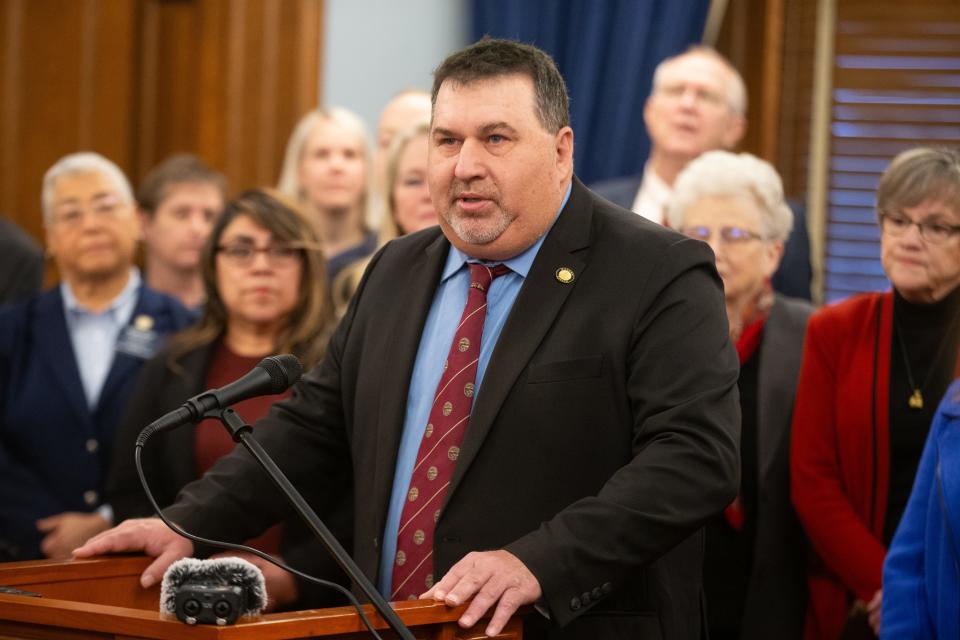Kansas Senate passes tax plan with veto-proof majority, but the House has its own plan
The Kansas Senate passed its second attempt at tax reform on Thursday after its last attempt failed to overcome Gov. Laura Kelly’s veto, but the latest attempt appears to have secured a veto-proof majority.
Senate Bill 539 included a single-rate tax, also called a flat tax, that Kelly has repeatedly said she’d veto if it reached her desk. The flat tax in this bill would put a 5.7% rate on all taxable income and inch down 0.05% every year until it reaches a 5.45% rate in 2029. Originally, Republicans sought a 5.25% rate.
Increase the standard deduction for single individual taxpayers from $3,500 to $4,000, and would tie the standard deduction to inflation starting in 2025.
Increase the personal exemption from $2,250 for each dependent from $2,250 per dependent to a base $11,000 for an individual and an additional $3,000 per dependent.
Exempt Social Security from income taxation.
Increase the statewide property tax school levy exemption from the first $42,000 to $100,000 and tie it to inflation.
Eliminate the grocery sales tax to zero starting on July 1.
Reducing the tax rates on banks to 1.63% by 2026.
Create a child tax credit.

Democrats have characterized the Republican plan as fiscally unsustainable and overly beneficial to higher earners at the expense of poor and working families.
“I hope that once the governor vetoes a flat tax for the second time this session, Republican leadership will take irresponsible flat tax proposals off the table and join me in having honest conversations about passing tax cuts that we can afford that will support working families,” Senate Minority Leader Dinah Sykes, D-Lenexa, said in a news release after the vote.
Republicans have denied the charge that a single-rate primarily benefits wealthier Kansas, saying it's fair for everyone, that it simplifies the tax code and that the tax bill as a whole provides a lot of tax relief to lower earners.
“No one can say that we are helping the rich with this legislation. This is helping low- and medium-income families,” said Sen. Caryn Tyson, R-Parker.
The bill eventually did pass with the support of Sen. John Doll, R-Garden City, and Sen. Dennis Pyle, I-Hiawatha. Both have expressed support for the governor’s proposed tax cuts and voted for a proposed gut and go, when a floor amendment replaces most of the contents of a bill, that more resembled the governor’s plan.

The other main defector from party, Sen. Rob Olson, R-Olathe, voted against the bill. Throughout the debate, Olson has been a fierce critic of the process of passing the bill, saying they should pass the tax cuts the parties agree on individually rather than bundled together.
“It would be great if we’d stop bundling all these bills to conference. If we just take one of these issues on at a time, the people would probably win more,” Olson said.
Sen. Tim Shallenburger, R-Baxter Springs, explained that the bill is most likely going to languish in the House rather than get a vote. On Wednesday, Rep. Francis Awerkamp, R-St. Marys, introduced a similar tax plan in the House.
Shallenburger said leadership will eventually introduce a tax plan via a conference committee report, a joint bill worked out between members of both the House and Senate that can’t be amended on the floor. If that fails, they’ll have to compromise or do nothing.
“We're not going to get there tonight,” Shallenburger said. “But I think we have made headway having this debate today.”
This article originally appeared on Topeka Capital-Journal: Kansas Senate passes new flat tax that governor would likely veto

